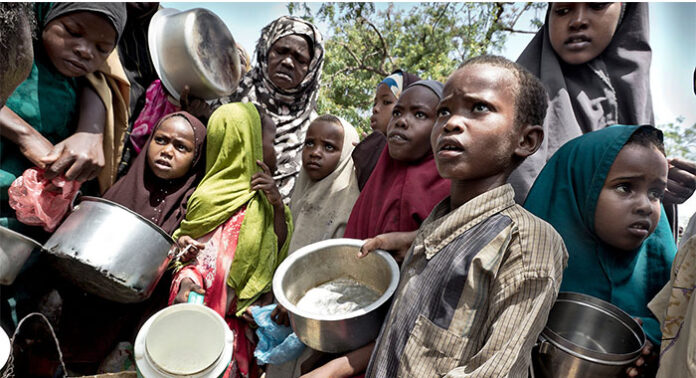A recent report from the World Food Programme (WFP) has revealed alarming levels of hunger and malnutrition across Nigeria. Despite the Right to Food Act passed in 2023, millions of Nigerians remain food insecure in 2025.
The report found that 11 million people in six northern states—Borno, Bauchi, Katsina, Kano, Sokoto, and Zamfara—face acute food shortages. Insecurity, poor policy implementation, and economic challenges worsen the situation in these regions.
Additionally, one in three Nigerian children under five, about 11 million, suffer severe food poverty, increasing their risk of life-threatening conditions.
Efforts to Combat Malnutrition
Médecins Sans Frontières (MSF) revealed it treated over 300,000 children for malnutrition in 2024, marking a 25% rise from 2023. MSF reported that 75,000 of these children needed inpatient care, while 250,000 were treated through outpatient programs across seven states.
Dr Simba Tirima, MSF’s country representative, warned, “Without an adequate supply of therapeutic foods, we will struggle to effectively treat malnourished children, which could lead to preventable fatalities.”
MSF has begun stockpiling supplies ahead of the peak malnutrition season, particularly in Bauchi State, which houses a 250-bed inpatient facility and three outpatient feeding centres.
However, Tirima expressed concerns over reduced funding for humanitarian agencies, saying, “Authorities and partners must take greater action to address the malnutrition crisis.”
The WFP and MSF have called on government authorities and international partners to strengthen food security initiatives and prioritize the distribution of essential nutritional aid.
Like 👍, Comment, share this article, and Follow us on our social media handles.







